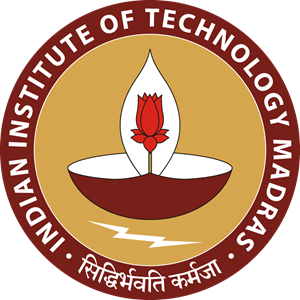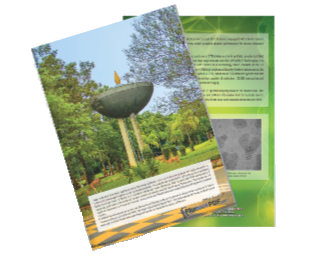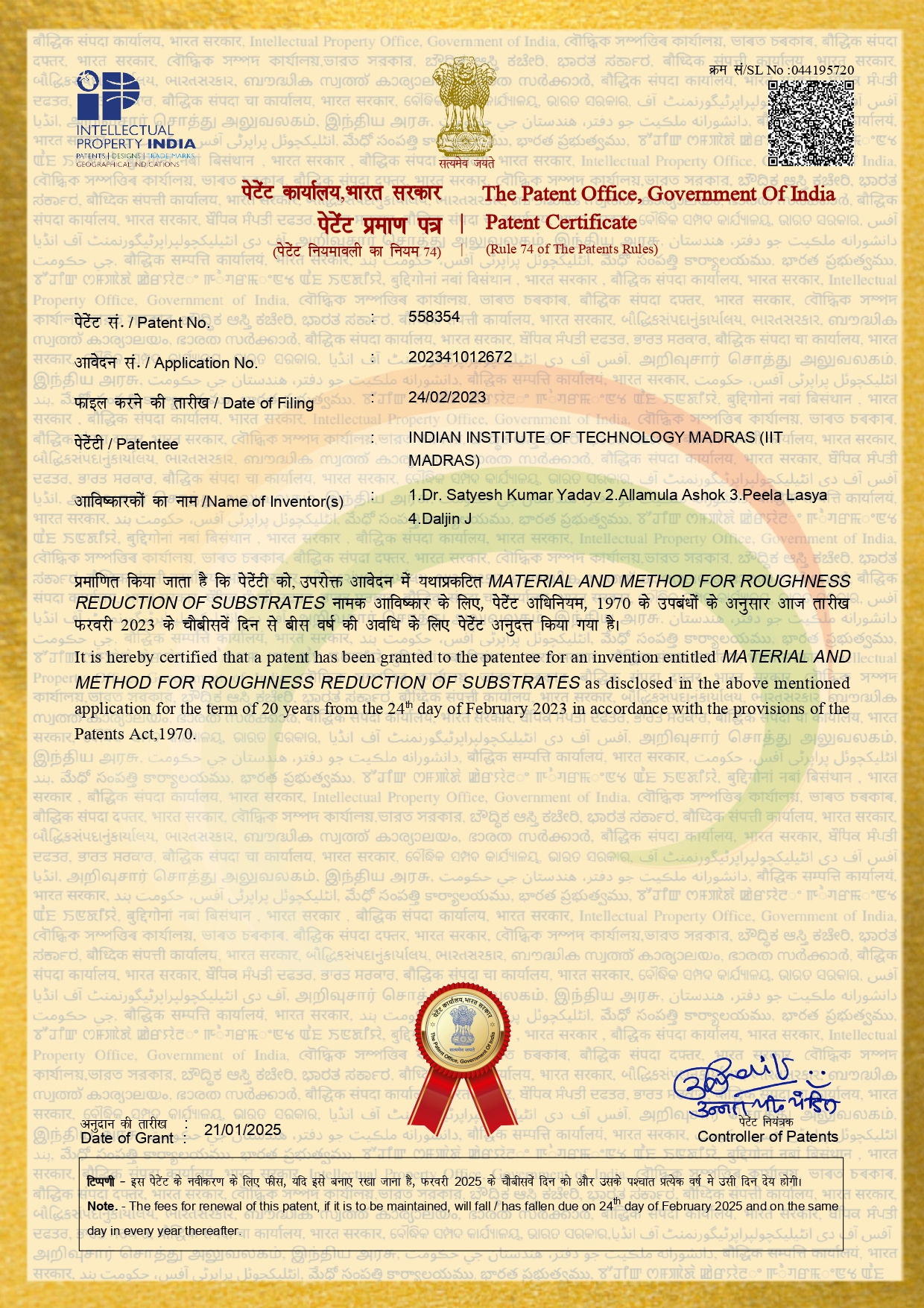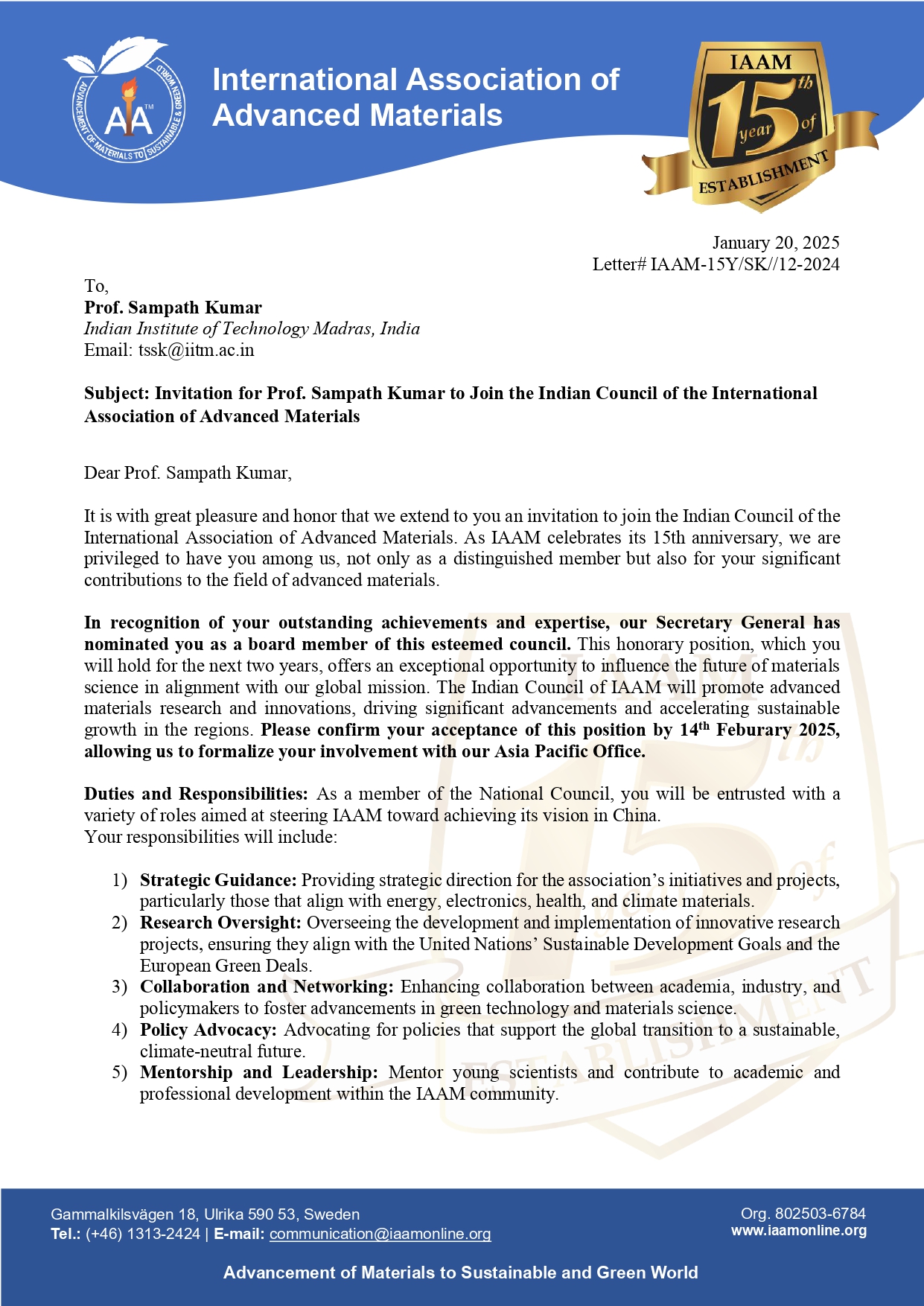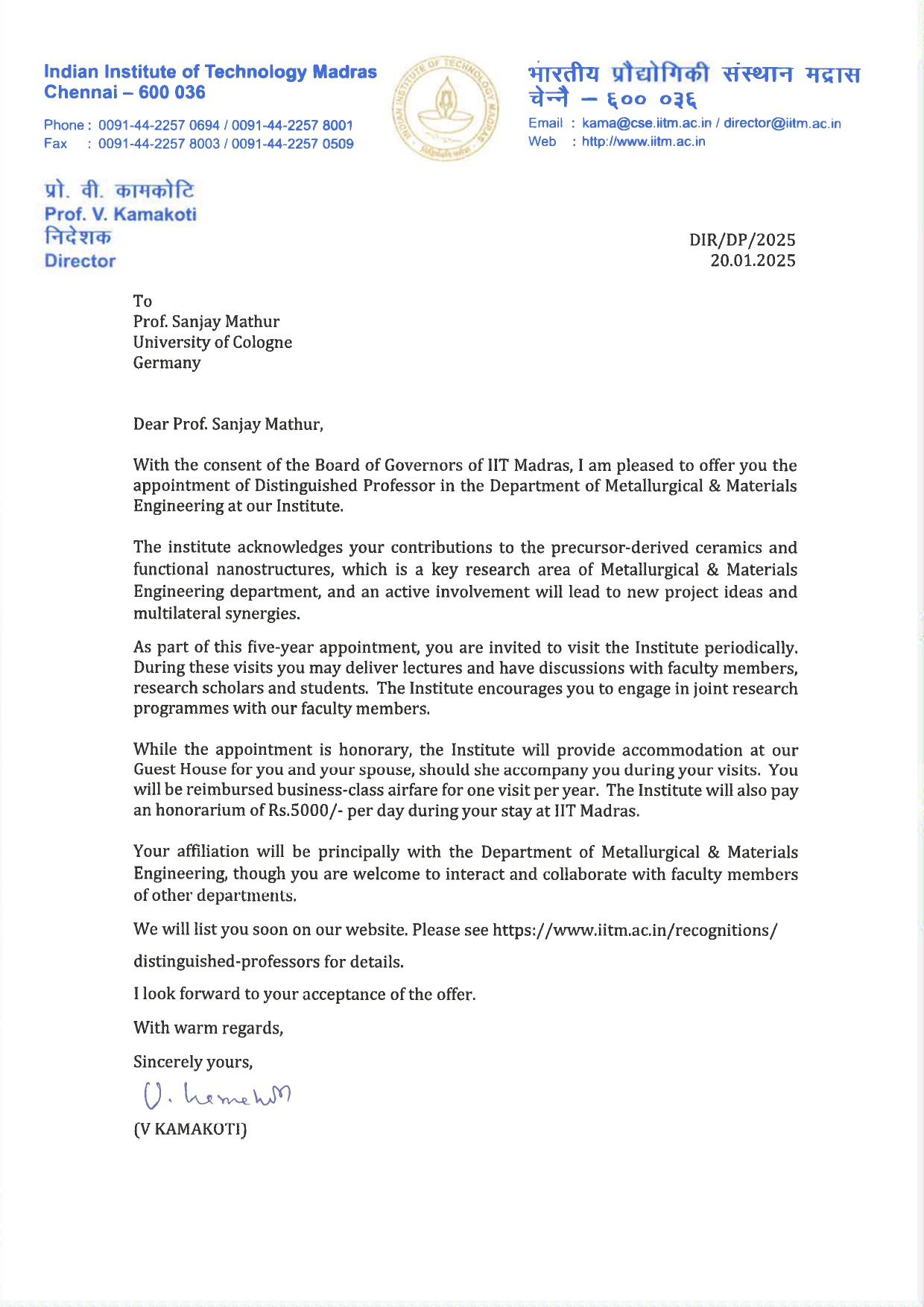

Welcome to the Department of Metallurgical and Materials Engineering. We are one of the oldest departments of IIT Madras, established in the same year as the Institute in 1959. In the first few decades of its existence, then known as the Department of Metallurgy, the focus was more on industrial metallurgy. However, over the past few decades, the department changed to the Department of Metallurgical and Materials Engineering to adapt to the transformations and expectations worldwide in diverse materials science and engineering areas. Several faculty members of the department in recent times have taken the lead in establishing prospective centres of excellence in the areas of advanced/correlative microscopy, materials and manufacturing for futuristic mobility that includes additive manufacturing, ceramic technologies and surface engineering along with pyrometallurgy. The department hosts state-of-the-art processing and characterization facilities, including excellent computational infrastructure. If you are interested in pursuing a career in metallurgy, materials science and engineering and excel, this is the department that you should be in.
Prof. Subramanya Sarma Vadlamani
Head, Dept of Metallurgical & Materials Engg., & Professor In charge of Scanning Electron Microscopy Laboratory
